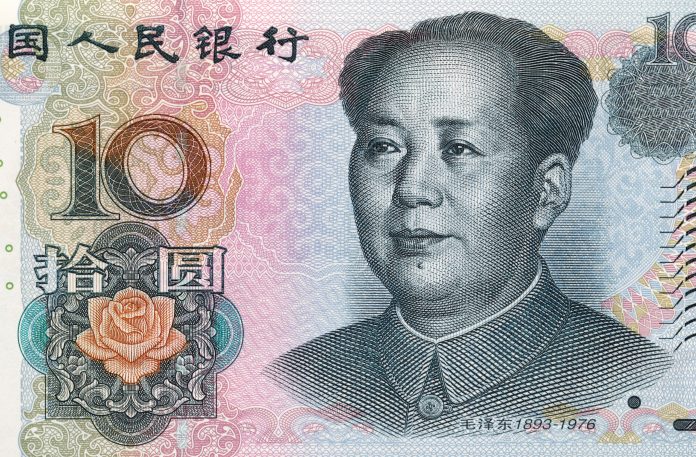This article provides insight into the work of China’s Minister of Finance Liu Kun, who is responsible for strengthening a proactive fiscal policy in one of the world’s biggest and most powerful economies
China’s Minister of Finance Liu Kun is responsible for strengthening a proactive fiscal policy in one of the world’s biggest and most powerful economies
Since China introduced reforms in the late 1970s to create a “socialist market economy”, known in the West as the Opening of China, the country has consistently had one of the world’s fastest-growing economies.
This has brought about huge changes, both economic and social, including the rapid growth of the private sector, a rise in foreign investment and burgeoning demand for consumer goods. Indeed, China is the world’s largest manufacturer and exporter, the second-biggest importer of goods and the fastest-growing consumer market.
Average incomes have risen, though so too have income disparities, while China’s unequal transportation system and differences in human and natural resources have produced significant variations in regional economies.
President Xi Jinping’s “Chinese Dream” has the dual goals of achieving the “Two 100s”: firstly, China becoming a “moderately well-off society” by 2021, the 100th anniversary of the foundation of the Communist Party; and secondly, for China to become a fully developed nation by 2049, the 100th anniversary of the founding of the People’s Republic.
Liu Kun has been China’s Minister of Finance since March 2018. He oversees the formulation and implementation of fiscal and taxation strategies, policies for macroeconomic regulation and control, international negotiations on finances and debt and central government’s fiscal revenue and expenditure management.
As party secretary of the Ministry of Finance, he is in charge of the Department of Taxation, the Department of Budget, the Department of Defence and the Department of Personnel & Education.
A key priority for the Ministry, as mandated by the Central Economic Work Conference held at the end of 2018, is strengthening and improving the implementation of a proactive fiscal policy.
In a recent speech, Liu Kun said that:
“From the perspective of building a well-off society in an all-round way, it is necessary to support the fiscal policy to consolidate China’s economic stability and progress.”
“In recent years, we have paid great attention to the advantages of the fiscal policy control structure and adhered to the supply-side structural reform as the main line and achieved remarkable results,” he adds.
“At the same time, we must also see that China’s supply system is still not adapting to changes in the demand structure and it is difficult for the economy to achieve a virtuous circle.
“Implementing a proactive fiscal policy and intensifying efficiency, while stabilising aggregate demand, increasing support for supply-side structural reforms, promoting the resolution of deep-seated structural problems in economic development, is conducive to enhancing the quality advantages of China’s economy.”
The Minister acknowledged that the real economy faces many difficulties and risks in key areas, as well as relatively large downward pressure.
“To consolidate China’s overall economic stability and steady progress, it is necessary to continue to implement a proactive fiscal policy and increase efforts to improve efficiency, stabilise employment, stabilise finance, stabilise foreign trade, stabilise foreign investment, stabilise investment and stabilise expectations.”
Tax reduction and fee reduction are seen as key measures to deal with the downward pressure on the economy, the Minister said, as it reduces the burden on enterprises, stimulates SMEs and promotes industrial transformation and innovation.
2019 has seen a focus on tax cuts set out in a “big gift package” to the people. This includes a reduction in corporate tax and social security contributions worth nearly 2 trillion yuan, described as the “largest tax reduction in history.”
There has been a reduction in VAT for industries such as manufacturing from 16% to 13% and from 10% to 9% for sectors including construction and transportation.
In addition, since 1st January, small and micro-enterprises with monthly sales of less than 100,000 yuan have been exempted from value-added tax.
Furthermore, since the start of this year, six special deduction policies for personal income tax related to children’s education and continuing education have benefited around 48.8 million people. Overall, 91.6 million people do not have to pay any personal income tax.
Another key element of achieving a well-off society is fighting the “three major battles” of supporting technological innovation, supply-side reform and rural development.
“The financial sector plays a particularly important role in supporting the three major battles,” Liu Kun says.
“By grasping the most direct and most realistic interests of the people, highlighting the publicity and fairness of finance and improving the fiscal and taxation arrangements, we can effectively play the role of preventing and defusing major risks, eliminating poverty and improving the quality of the ecological environment.”
Nevertheless, China’s efforts to improve the implementation of a proactive fiscal policy have brought enormous pressure on the fiscal balance. In order to make up the resource gap caused by large-scale tax and fee reductions, the central government has reduced general expenditures and arranged for local transfer payments to exceed 7.5 trillion yuan, the largest seen in recent years.
In the face of these fiscal reductions, it is up to government at all levels to “take the lead in tightening their lives”, the Minister said, to ensure annual budgets balance and policies are implemented.
“Always adhere to hard work, diligence and saving,” he adds.
“We must take the tight days as the long-term policy of financial work and implement and reflect them in the whole process and all aspects of financial work.”
Open Access Government
editorial@openaccessgovernment.org
www.openaccessgovernment.org
https://twitter.com/OpenAccessGov











